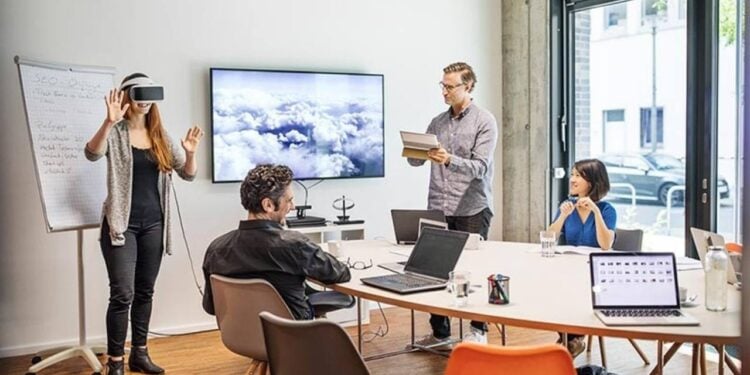Not only are office leases becoming more flexible, but their furniture is as well.
Furniture designers have noted that leaders are prioritizing agility and flexibility in order to create an immersive office environment that accommodates everyone’s style of work.
Modular designs like acoustic panels, storage units and room dividers help workers find a space that best suits their needs at any given time, while ensuring that these areas are being utilized to their fullest potential.
“Multi-functional spaces, and furniture that enables open-plan areas to be temporarily repurposed for meetings, gives organizations the flexibility to scale up or down according to changing occupancy and needs,” said Guzman de Yarza Blache, Head of Workplace Strategy at JLL EMEA.
For instance, global law firm Norton Rose Fulbright recently implemented new designs, such as sliding and stacking doors, to quickly expand rooms at a moment’s notice.
“With permanent shifts in working patterns now widely acknowledged, it’s not just location or square footage that needs careful consideration,” said Yarza Blache.
“Versatile furniture can play a starring role in reshaping the office for agility, as organizations look to transform their spaces and respond to changes in workplace culture.”
Not only does this support the clear transition that the world is making to a more flexible workforce, it also shows employees that their unique needs are being addressed by their employer.
“With office fit-out now evolving to support both high performance work and employee wellbeing, we have seen the emergence of homely ‘resimercial’ furniture and design layouts,” said Betty Surgis, Head of Furniture Solutions at Tétris EMEA.



 Dr. Gleb Tsipursky – The Office Whisperer
Dr. Gleb Tsipursky – The Office Whisperer Nirit Cohen – WorkFutures
Nirit Cohen – WorkFutures Angela Howard – Culture Expert
Angela Howard – Culture Expert Drew Jones – Design & Innovation
Drew Jones – Design & Innovation Jonathan Price – CRE & Flex Expert
Jonathan Price – CRE & Flex Expert











